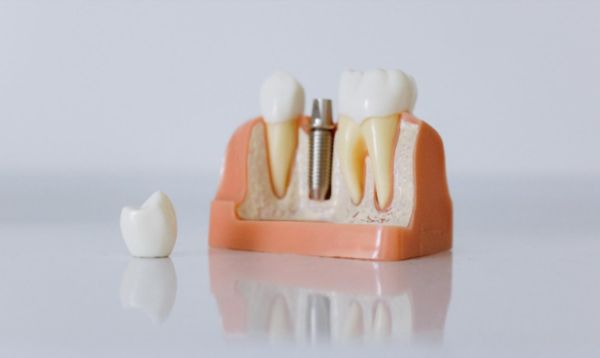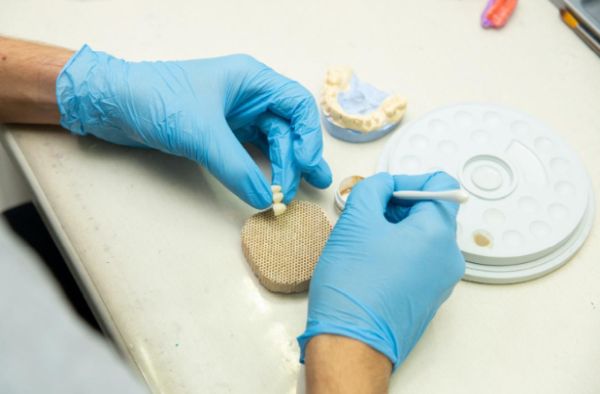Dental Implants – What to Know Before You Get Them
 Dental hygiene can be hard to stay on top of. The unfortunate fact of the matter is that most insurance companies – and by most, of course, we mean virtually all – treat teeth as luxury bones you need to pay extra to maintain.
Dental hygiene can be hard to stay on top of. The unfortunate fact of the matter is that most insurance companies – and by most, of course, we mean virtually all – treat teeth as luxury bones you need to pay extra to maintain.
It’s easy to let certain diseases and dental problems go untreated for too long. A rising number of people are experiencing dental health issues, and unfortunately, many of these problems can lead to losing teeth.
Over time, a neglected mouth can be a major health issue for the rest of the body as well, as tooth and gum health are closely linked to the severity of conditions like blood pressure, diabetes, and your heart’s overall well-being.
If you’ve lost a tooth or two to dental problems or injury, you may feel like you have no real options left but to grin and bear it. Fortunately, there are plenty of options for you to get your smile back!
While solutions like dentures and other temporary teeth are great in the short term, your best (and most affordable in the long term) bet is going to be getting implants.
They’re the best way to get your smile back permanently, and thanks to leaps in technology they’ve become stronger and more affordable than ever. If you’re considering getting a dental implant procedure, there are a few things you should know about them first.

What Are Implants?
Dental implants are artificial teeth that are permanently attached to the jaw. The implants themselves can be made of a number of materials, but the most popular options are titanium, porcelain, and most recently, zirconia.
They resemble real teeth and are surgically affixed to the jaw through one of two methods. Endosteal is the most popular and, ultimately, the best way to get your smile back. This method involves creating a screw structure that goes directly into the jawbone. It’s the more expensive of the two ways, but it provides second-to-none strength for your new teeth.
Endosteal mimics real teeth more closely by creating a metal root to replace the natural root you’ve lost. Subperiosteal implants are not affixed to the jawbone directly but are instead placed below the gum line and above the bone. This is a less expensive method but lacks the strength of the endosteal.
Either option is going to give you your smile back, and may in fact be stronger than your original! Your dental professional can help determine which method is right for you.
Your needs will also vary depending on how many teeth you need and where they’re missing. A single tooth implant will replace, as the method implies, one missing tooth. If you’re missing a few adjacent teeth, a supported bridge might be for you: it affixes the new teeth at the ends of the gap.
If you already have dentures but need something stronger, an overdenture is just the thing for you. They snap into place onto installed metal pegs and, while still removable for cleaning and the like, provide a stronger bite force than traditional options.
Finally, the full arch is a permanent version of the overdenture, affixing whole upper or lower sets of teeth to the jawbone. This option is best for those missing large numbers of teeth, or who have no teeth on one or both of their jaws. You can learn more about these methods at https://www.nuviasmiles.com/blog/different-dental-implant-options.
 Risks and Rewards
Risks and Rewards
No surgical procedure is without risk, and these are no different. While all procedures and currently available materials have been approved by the FDA, there are still things that should be considered before going into surgery.
First, your dentist will need to determine if your jawbone is healthy enough for the procedure, and which procedure will best fit. It would be dangerous to drill into a jaw that’s lost too much bone density, and it might not be able to maintain a good hold on the implant structure if it’s prone to cracking or is too soft.
There are, of course, concerns around any surgery: nerve damage, damage to surrounding tissue, and other complications are possible. Poor ongoing oral hygiene can also render the benefits of implants lesser, which requires staying on top of your mouth’s health.
The benefits, however, are substantial in comparison. The obvious benefit of having your teeth back is that you’ll be able to bite and chew more easily.
Being able to enjoy the foods you’ve been missing is a magnificent feeling, especially when you can do it pain-free and confidently. Speaking of confidence, one of the main benefits of replacing your missing teeth with dental implants is the boost of confidence you’ll get from having a smile again.
Being able to flash your pearly whites proudly and boldly is something you deserve. Additionally, implants can help improve your dental health overall by protecting the jawbone and gum line. Along with proper hygiene and care, they can give you the healthiest mouth you’ve ever had.
 Final Thoughts
Final Thoughts
Dental implants are a great choice for people who want to replace their missing teeth with something permanent, healthy, and great looking. More information about them can be found by clicking here.
Injury or disease can rob you of your smile, but that doesn’t have to mean that you’re without it forever. The procedures are safe and range from permanent to semi-permanent, and can help fill you up with confidence again.
Implants are a fantastic way to recover your dental health and give you the best smile you’ve ever had. If you’re interested in getting permanent dental implants, you can talk to your dentist about which kind of treatment is right for you.
The industry has made leaps and bounds in perfecting the technology and procedures involved, and there are plenty of great options for you to choose from.
While there are risks involved, and while you will need to maintain oral health moving forward after the surgery, the benefits can’t be ignored. They’re a great way to get your smile and confidence back again!






